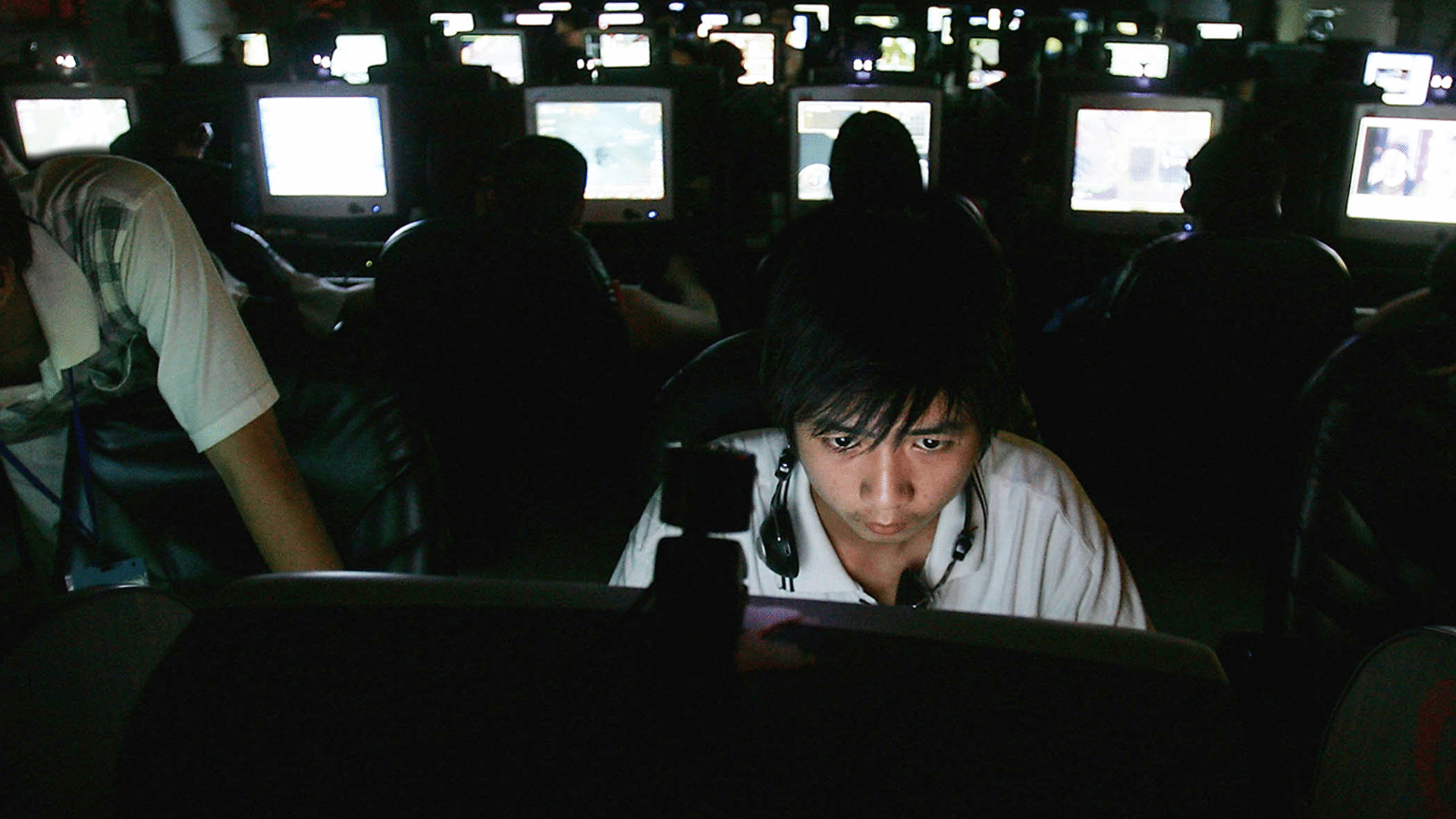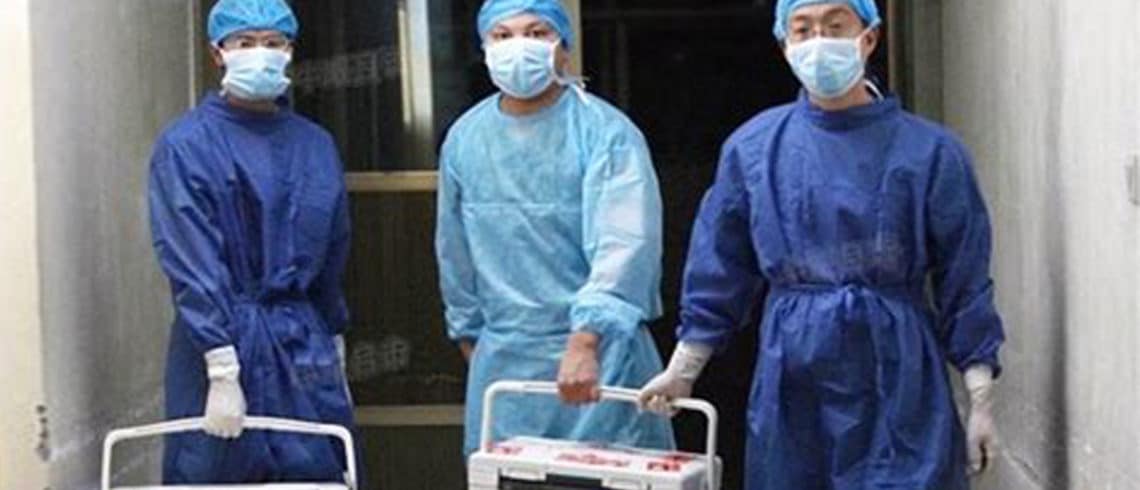
Forced Organ Harvesting
A growing body of evidence indicates that Chinese hospitals have been colluding with the country’s police in a nefarious scheme known as “organ harvesting.” They hold prisoners of conscience against their will, often illegally, examine them for organ compatibility, and then systematically remove their healthy organs to supply transplants for a booming organ transplantation industry.
Their bodies are cremated, according to eyewitnesses.
The vast majority of prisoners of conscience targeted in this manner are believed to be Falun Gong practitioners — possibly running into tens of thousands annually, according to estimates by Ethan Gutmann, an investigative journalist, David Matas, an international human rights lawyer, and David Kilgour, a former Canadian member of parliament, who published their findings in 2016.
Allegations of mass murder of Falun Gong practitioners for organs have been made since 2006. With every year that has passed since — and in particular over the last few years — more evidence has emerged supporting the allegations. The methodologies used for analyzing the evidence have become more robust, and concerns have become increasingly mainstream. Meanwhile, the position of the Chinese regime and its defenders, who deny the claims, has become increasingly untenable.
The matter of whether — and in what volume — Falun Gong and other prisoners of conscience have been killed for their organs, has occupied a somewhat awkward place for world governments, major human rights organizations, and major media corporations ever since the allegations surfaced in 2006.
Millions of people around the world, including prominent experts, have seen documentaries like Human Harvest or Hard to Believe, have read the reports, and have concluded that such crimes against humanity have indeed taken place. But the matter is more complex for the foreign ministries of Western countries. If they were also to conclude that these crimes have happened, they would have to determine what to do about it.
The acts alleged are equivalent to any of the major crimes against humanity of the 20th century, if not in scale, then certainly in severity. It is possible that global exposure and acknowledgment that these crimes have taken place, and are likely still taking place in China, would raise major questions about the legitimacy of the ruling Communist Party, and compel a strong response from governments.
Recently, a number of developments have swiftly raised awareness of this issue and are sounding alarms.
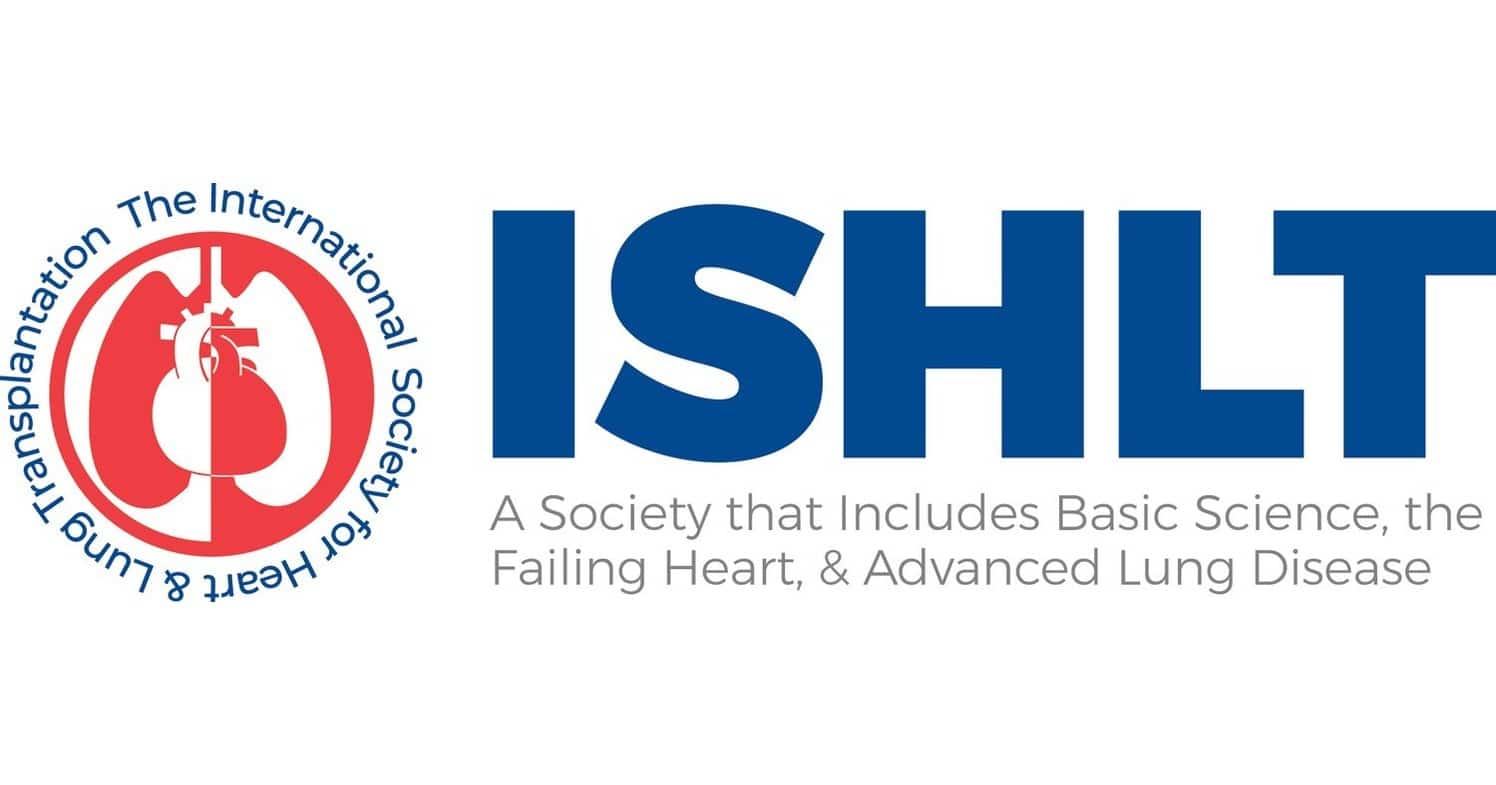
In June 2022, the International Society of Heart and Lung Transplantation issued a policy that excludes submissions that are “related to transplantation and involving either organs or tissue from human donors in the People’s Republic of China.”
On March 30 2022, the UK’s House of Commons passed a government backed amendment to the Health and Care Bill, which extends the prohibition of commercial organ tourism to extraterritorial grounds. Effectively, UK citizens are now prohibited from purchasing organs for transplant from China due to ethical risks.
The cross-party amendment was introduced by Lord Hunt of Kings Heath and was drafted with overwhelming support. It passed through the House of Lords on March 16, 2022 with a majority of 203 votes to 159.
At the time of the Lord’s vote, Lord Hunt stated:


“Forced organ harvesting in China is the crime of forcibly extracting organs from prisoners of conscience, killing the victim in the process. The harvested organs are sold to Chinese officials, Chinese nationals or foreigners for transplantation. This is a very modest amendment, doing our bit to try to prevent this obnoxious habit.”
UK Health Minister Edward Agar further commented, along with the government’s “commitment to work with NHS Blood and Transplant to make more patients aware of the legal, health, and ethical ramifications of purchasing an organ”, this amendment would “send an unambiguous signal that complicity in the abuses associated with the overseas organ trade will not be tolerated”.
H.R. 6319 Falun Gong Protection Act was introduced to the 117th Congress (2021-2022) by Representative Perry Scott [R-PA-10] on December 17, 2021. It was referred to the Committee of Foreign Affairs and to the Committee of the Judiciary.
This bill aims to impose “visa- and property-blocking sanctions on foreign on persons that are knowingly responsible for, are complicit in, or have engaged in the involuntary harvesting of organs in China.”
The bill requires the President of the United States to:
March 3, 2021, H.R. 1592 Stop Forced Organ Harvesting Act of 2021 was introduced to the 117th Congress (2021-2022) by Representative Christopher H. Smith [R-NJ-4]. It was referred to the Committee on Foreign Affairs, Energy and Commerce, and the Judiciary.
The bill establishes measures to combat forced organ harvesting and international trafficking. The measures include:
On March 4, 2021, Senator Tom Cotton [R-AR] introduced S. 602 Stop Forced Organ Harvesting Act of 2021, an identical bill to H.R. 1592, and referred to the Committee of Foreign Relations.
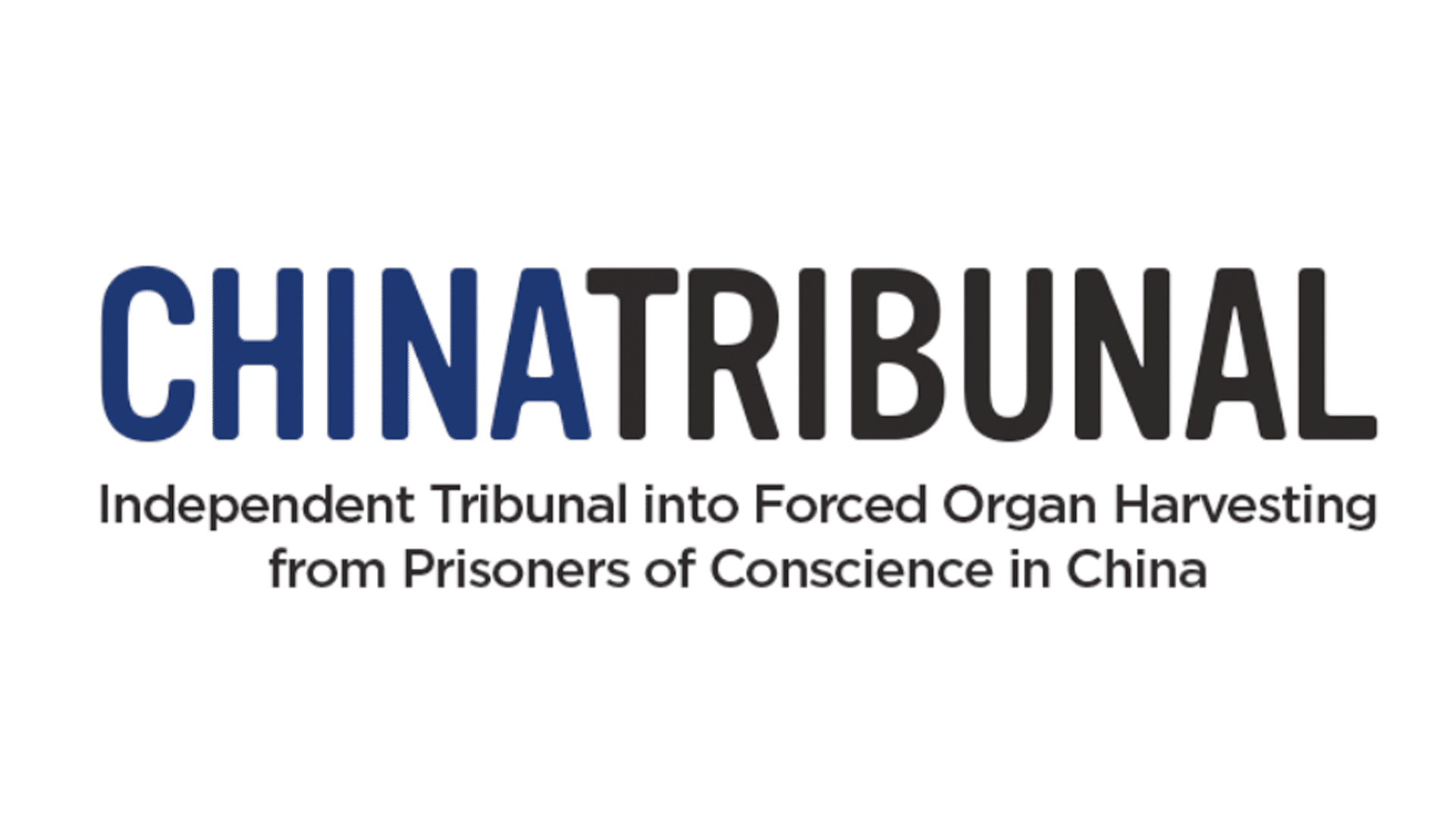
The Independent Tribunal into Forced Organ Harvesting of Prisoners of Conscience in China was chaired by the eminent British barrister and professor, Sir Geoffrey Nice QC. Nice led the prosecution of Slobodan Milošević at The Hague and subsequently worked on cases before the permanent International Criminal Court. The Tribunal consists of a group of experts from a variety of fields who evaluated the evidence of organ harvesting in China and rendered a judgement as to whether crimes against humanity have been committed.


“Forced organ harvesting has been committed for years throughout China on a significant scale.”
After first reading evidence for about nine months before holding three days of hearings in London, in December 2018, the tribunal issued an interim judgment that stated: “The Tribunal’s members are all certain — unanimously, and sure beyond reasonable doubt — that in China forced organ harvesting from prisoners of conscience has been practiced for a substantial period of time involving a very substantial number of victims.”
In 2019, the China Tribunal concluded in regards to forced organ harvesting:
Forced organ harvesting has been committed for years throughout China on a significant scale and that Falun Gong practitioners have been one – and probably the main – source of organ supply…. The Tribunal has had no evidence that the significant infrastructure associated with China’s transplantation industry has been dismantled and absent a satisfactory explanation as to the source of readily available organs concludes that forced organ harvesting continues ’till today.
China Tribunal, “Judgement”, China Tribunal, June 17, 2019, https://chinatribunal.com/final-judgment/
The Final Judgement was delivered in June, 2019.
The Full Judgement was released in March, 2020.
In response to the increasing overseas pressure, Chinese transplant officials promised that in 2015 they would no longer source organs from death-penalty prisoners. This claim was largely accepted by the international transplantation establishment. Subsequently, Chinese officials became members of the World Health Organization’s organ transplantation task force, and Chinese surgeons continued publishing in Western medical journals and presenting papers at conferences.
But new scientific research is calling into question these claims of reform.
A paper titled “Analysis of Official Deceased Organ Donation Data Casts Doubt on Credibility of China’s Organ Transplant Reform” finds that China’s data follows an arbitrary growth formula — specifically, a quadratic equation — extraordinarily closely. The paper is authored by Matthew Robertson, a doctoral student at the Australian National University and research fellow with the Victims of Communism Memorial Foundation; Dr. Raymond L. Hinde, a statistician; and Dr. Jacob Lavee, a cardiac transplant surgeon and professor of surgery.
The meteoric rise in transplant operations in China directly correlates to the meteoric rise in Falun Gong practitioner detainees. In Falun Gong, the Chinese regime suddenly had a near-endless supply of organs to draw from.
— Levi Browde, Executive Director at the Falun Dafa Information Center, 2019.
The claim of such incredible smoothness of growth is in contrast to the highly contingent nature of voluntary deceased organ donation, where eligible donors only become available at random, and their family members often decline to consent. When compared to comparable data from 50 other countries for goodness of fit to the same type of model, none come close — precisely because real transplant data does not tend to look almost exactly like a mathematical model. This raises the question of whether China’s data actually represents real organ donation activity taking place across the country or was simply fabricated by using a model as a template.
To test the hypothesis of data falsification suggested by the initial analysis, the authors compared the data to that generated by the Red Cross, both centrally and locally, and then compared this data to hospital data in a number of provinces. They discovered that there were multiple anomalies in all of the datasets, many of which could only be explained by human-directed manipulation.
In one case, the Red Cross data claimed that Chinese hospitals had obtained 21.33 organs per donor for a period of about two weeks — a clearly impossible claim. The authors stated, “The manufacture and manipulation of three datasets is indicative of a deliberate, elaborate, and systematic process of falsification that appears to have been intended to create a misleading impression about the successes of China’s voluntary organ donation program.”
The finding of systematic falsification of official organ-donation data raises numerous questions about China’s organ transplant system — including both the real magnitude of the voluntary system claimed by officials, as well as the actual transplant activity that goes on beyond that system.
As fore-mentioned, the China Tribunal concluded in 2019:
Forced organ harvesting has been committed for years throughout China on a significant scale and that Falun Gong practitioners have been one – and probably the main – source of organ supply…. The Tribunal has had no evidence that the significant infrastructure associated with China’s transplantation industry has been dismantled and absent a satisfactory explanation as to the source of readily available organs concludes that forced organ harvesting continues ’till today.
China Tribunal, “Judgement”, China Tribunal, June 17, 2019, https://chinatribunal.com/final-judgment/.
The United Nations issued a statement in 2021 that their human rights experts were extremely alarmed by these credible findings.[1]
Below is a compilation of evidence of forced organ harvesting of Falun Gong Practitioners.
In November 2017, South Korean TV Chosun released an undercover documentary The Dark Side of Transplant Tourism in China: Killing to Live. It explores the ethical dilemma of receiving organ transplants in China while uncovering the rapid availability of organs and lack of transparency in the supply.
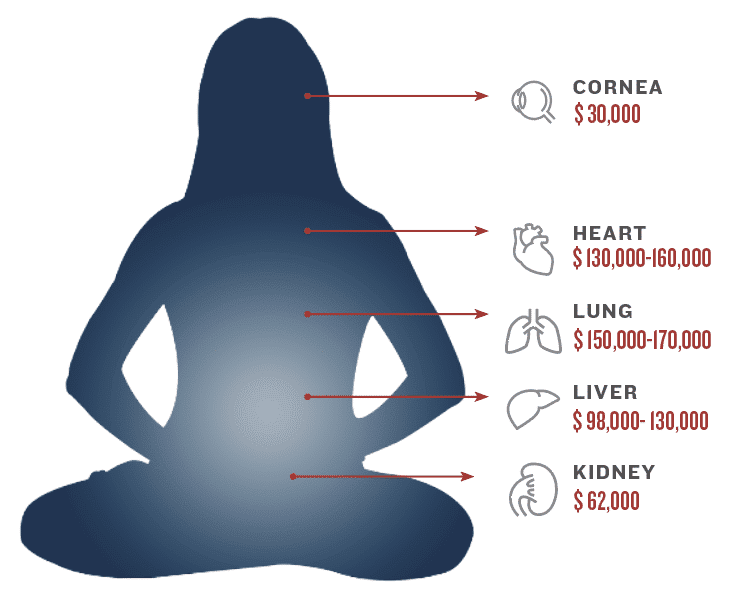
BBC World News’ 2018 exclusive on China’s organ transplant trade reports on the claims that China is using detained Falun Gong practitioners as an illicit source of vital organs for its booming transplant industry.
The Bloody Harvest report by David Matas and David Kilgour included transcripts of recorded phone calls with personnel from 15 Chinese hospitals and detention facilities who admitted that they used or could obtain vital organs of Falun Gong practitioners for transplant. Some doctors implicated local courts and security agencies in the procurement process. Some stated that Falun Gong practitioners’ organs are healthier than those from criminals.[2]
More recently, The World Organization to Investigate the Persecution of Falun Gong conducted hundreds of phone calls into organ transplantation centers and hospitals in 2020 and 2021, and uncovered irrefutable proof that the CCP’s unethical transplantation industry continued throughout the pandemic. This report also reveals that Falun Gong practitioners continue to be a source of organs.[3]
In regards to the extraction of organs, a research paper published by the prestigious American Journal of Transplantation on April 4, 2022,[4] found 71 Chinese-language clinical reports making explicit admissions of surgeon killing, i.e., the “donors” being still alive when their organs were removed. The authors suspect these were a tiny portion of a large, hidden population.[5]
Chinese government claims that it stopped harvesting organs from death-row prisoners in 2015 and has been using organs only from voluntary donation since then. But a research paper published by BMC Medical Ethics in 2019 found that the growth curves of China’s voluntary donations for three organ types followed an impossibly smooth upward rise that formed nearly perfect quadratic equations, which suggests the data were falsified. The paper also concluded that the “voluntary system appears to operate alongside the continued use of nonvoluntary donors (most plausibly prisoners) who are misclassified as ‘voluntary.’”[6]
Due to traditional beliefs, most Chinese prefer to keep the body intact after death, so voluntary organ donation in China is rare. Before 2009, there were only 120 voluntary donations in total,[7] while in the following few years executed prisoners still accounted for the majority of “donated” organs, said former vice minister of health Huang Jiefu.[8] Though China started building a national organ donation program in 2013, only 262,500 (about 0.02% of Chinese population) registered as voluntary organ donors at the end of 2017.[9] In the U.S., more than 145 million[10] people (44% of U.S. population) are registered organ donors. If we assume the same ratio of annual transplants (35,582[11] in 2017 in the U.S.) vs. the size of donor pool (145 Million) in the U.S. to China, China would only be able to perform about 65 transplants a year out of voluntary donation. But China conducted 16,687 transplants in 2017.[12] Where did the rest of organs come from?
He Xiaoshun, a member of the Expert Committee of the Human Organ Donation Commission and vice president of the First Affiliated Hospital of Sun Yat-sen University, stated to the Southern Weekly in March 2010,[13] “The year 2000 was a watershed for the organ transplant industry in China…the number of liver transplants in 2000 reached 10 times that of 1999; in 2005, the number tripled further [since 2000].” This jump in organ transplants coincides with the beginning of the persecution of Falun Gong, which began in July 1999, just six months before the beginning of the rapid growth in the transplant industry. This means that hundreds of thousands, possibly millions, of healthy people were entering China’s extra-judicial laogai system (labor camps, prisons, detention centers, black jails, psychiatric institutions, etc.) as a live organ pool.
As several human rights organizations including Dui Hua Foundation indicate, the number of criminal executions in China has been in a downtrend since 2000. Moreover, not everyone qualifies to be an organ donor. As China’s state-run media Guangming Daily reported in September, 2013,[14] about 50% of potential organ donors in China don’t qualify to be donors, as their organ health is not good enough. And the percentage among executed prisoners could be even lower, given their higher rates of sexually transmitted diseases and viral hepatitis.
From 1999 to 2006, the number of transplant centers increased by 300% from 150 to more than 600 centers in China.[15] Such an expansion in infrastructure suggests that authorities were confident in an abundant supply of organs, even without a voluntary donation program. Death row executions cannot explain such confidence, but the laogai system certainly could. The lives of Falun Gong practitioners are given no legal protections in China, and are considered forfeit once they enter the laogai system.
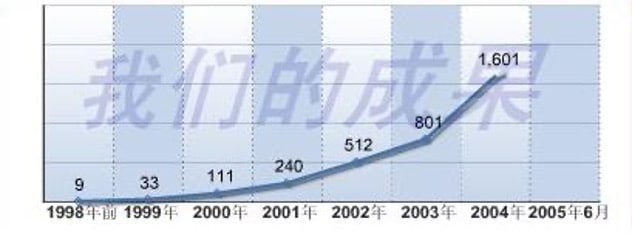
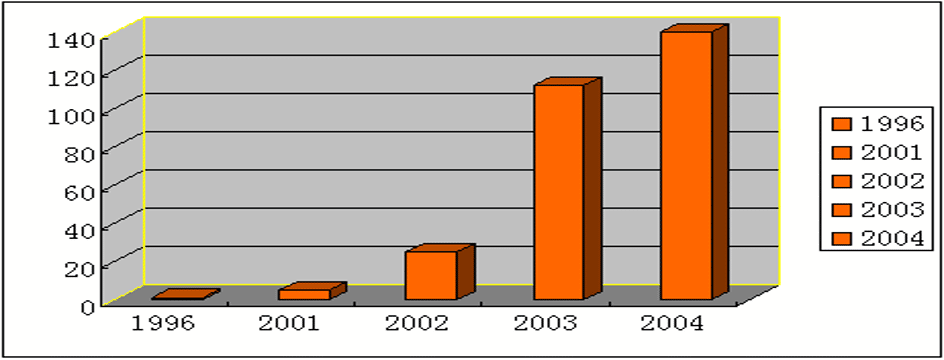
While Chinese officials have never given a precise figure, they typically say China transplants about 10,000 organs a year, sometimes reaching 20,000 a year (reported by China Daily[18] in 2006). But Kilgour, Gutmann, and Matas’s report “Bloody Harvest/The Slaughter: An Update”[19] shows that this annual figure is easily surpassed by just a few hospitals. Chinese and overseas media reported some hospitals in China conduct thousands of transplants a year.
By meticulous examination of the transplant programs of hundreds of hospitals in China, Kilgour, Gutmann, and Matas estimate that China’s actual transplant volume is closer to 60,000 – 100,000 per year since 2000.[20] But according to Amnesty International[21] and Dui Hua Foundation,[22] the number of executions in China is only a few thousand every year. With extremely low voluntary donation rate, this huge gap can only be explained by prisoners of conscience — mostly Falun Gong practitioners. The death toll could be hundreds of thousands for the past two decades combined.
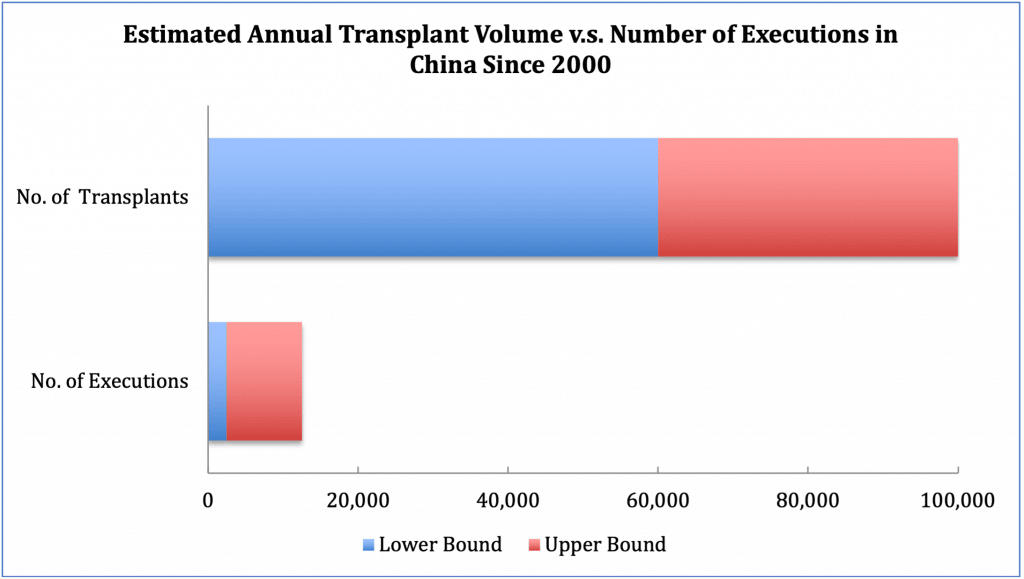
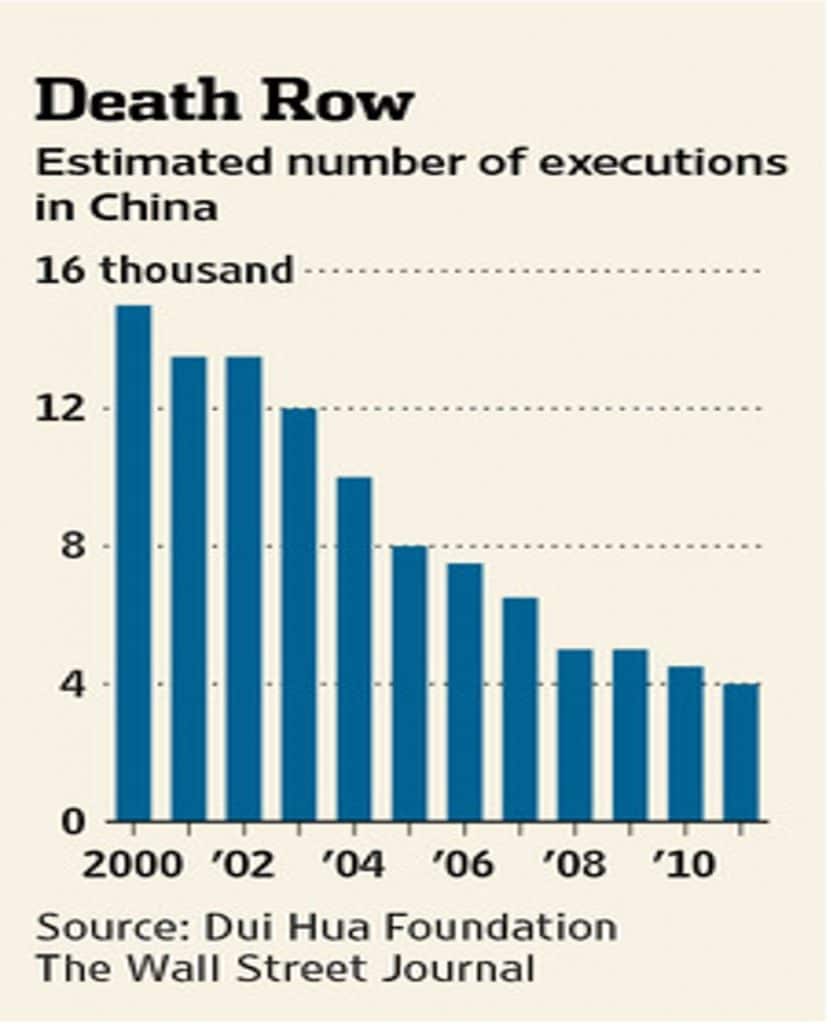
It has also been reported that many Falun Gong practitioners were administered blood tests and physical examinations, including MRIs, urine tests, etc., while in labor camps or prisons. These tests were not given for the benefit of their health, as they were often severely tortured. Instead, the exams appear to be used solely for assessing organ function. This would correspond with, and explain, the existence of a live organ bank for organ harvesting on demand.[23][24][25]
China’s organ transplant hospitals claim that a matching organ can be found within weeks or even days.[26][27][28] In other countries, it takes years. Coupled with the fact that organ transplants must take place quickly after removal from the donor’s body, these short wait times imply that Chinese hospitals have an extensive donor bank of living people, from which organs can be harvested on demand. For kidney and liver transplants, the waiting time in the U.S. is about 2 to 3 years.
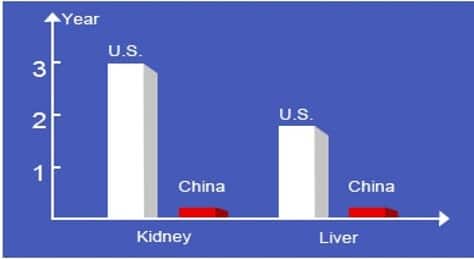
Many Chinese hospitals also, sometimes regularly, perform “emergency transplants,” meaning organs can be sourced within days, or hours. The China Liver Transplant Registry in 2006 reported that over 25% of transplants were “emergency.”[29] The shortest waiting times were just 4 hours, implying ‘donors’ in waiting to be killed.
The method of organ and tissue matching in China is also opposite to that of other countries. In countries with developed organ donation and distribution networks, when a donor dies, all organs of a donor can be used for transplant as long as the blood and tissue type matches that of someone on the waiting list. In China, as soon as someone needs an organ, a “donor” who matches the patient’s tissue and blood type is killed and his or her organ is extracted. Generally, patients only need a single organ, making it difficult to find matching recipients for the other organs of the prisoner due to a nonexistent organ donation and distribution network in China.
As reported by China Medicine News in 2004,[30] “because there is no organ transplant registration network, for some donors, only the kidney was taken, and all other organs were wasted.” As reported by Guangxi News on Jan. 9, 2013, as of early that year, only two hospitals in China could procure and transplant multiple organs from a single donor.[31]
Due to the nature of the process, it is not unusual to perform several transplant attempts for the same patient if the initial attempt is not successful. Every year, there are numerous cases where two, three, or even four transplant operations are performed for the same patient. Shen Zhongyang at the Tianjin Oriental Transplantation Center stated that the number of cases for his center to conduct secondary transplants for patients accounted for 10% to 20% of the total amount, due to improper handling or improper operation.[32]
Here are testimonies from Falun Gong practitioners affected by forced organ harvesting in China.
Videos:
Articles:
Dai Ying’s story: Forced organ harvesting “They kill innocent people for their organs”
The U.S. State Department’s Ambassador at Large for International Religious Freedom, Sam Brownback, told reporters in Hong Kong on March 8, 2019: “Allegations persist that the Chinese government continues to forcibly harvest organs from prisoners held on account of their faith, like Falun Gong practitioners and Uighurs. … This is the truly horrifying prospect.”[33]
Recent reports confirm that this form of persecution has been perfected and is now being extended to other groups. As of 2017, former Uyghur Muslim prisoners have testified to being subjected to suspicious blood tests and physical examinations[34] – very similar to those reported by Falun Gong practitioners. This means that it is very possible that Uyghur Muslims have increasingly been used as an organ source.
With the CCP yet to be penalized for this heinous crime, forced organ harvesting of Falun Gong practitioners is significant not only because of scale, but also because of the possibilities it entails. According to CCP state-owned media, an estimated 70 million[35] to 100 million Falun Gong practitioners and 11 million Uyghurs were living in China.[36] Even by the most conservative estimates, the CCP is sourcing their organs from millions of prisoners of conscience.


Governments and any who interact in any substantial way with the PRC… should now recognise that they are, to the extent revealed above, interacting with a criminal state.
Help end forced organ harvesting in China by:
1. Supporting the bills by
- requesting your senator to co-sponsor S. 761 Stop Forced Organ Harvesting Act of 2023
- requesting your senator to introduce the Falun Gong Protection Act to Congress.
2. Scheduling a briefing by contacting us here.
3. Raising awareness by sharing this page.
[1] The Office of the High Commissioner for Human Rights, United Nations, “China: UN human rights experts alarmed by ‘organ harvesting’ allegations”, June 14, 2021, https://www.ohchr.org/en/press-releases/2021/06/china-un-human-rights-experts-alarmed-organ-harvesting-allegations
[2] David Matas & David Kilgour, “Bloody Harvest: Revised Report into Allegations of Organ Harvesting of Falun Gong Practitioners in China”, Jan. 31, 2007 http://organharvestinvestigation.net/report0701/report20070131.htm#_Toc160145142
[3] https://www.upholdjustice.org/node/523
[4] Matthew P. Robertson, Jacob Lavee, “Execution by organ procurement: Breaching the dead donor rule in China,” The American Journal of Transplantation, April 4, 2022, https://onlinelibrary.wiley.com/doi/full/10.1111/ajt.16969
[5] Jacob Lavee and Matthew P. Robertson, “In China, New Evidence That Surgeons Became Executioners,” The Wall Street Journal, May 31, 2022, https://www.wsj.com/articles/china-new-evidence-surgeon-doctor-execution-murder-prisoner-organ-harvesting-donor-uyghur-falun-gong-genocide-human-rights-world-health-organization-who-11654012796
[6] Matthew P. Robertson, et al., “Analysis of official deceased organ donation data casts doubt on the credibility of China’s organ transplant reform,” BMC Medical Ethics, November 14, 2019, https://bmcmedethics.biomedcentral.com/articles/10.1186/s12910-019-0406-6
[7] Interview with Huang Jiefu, January 8, 2015. http://t1.cn-healthcare.com/article/20150108/content-468177.html
[8] Jiefu Huang, et al., “A Pilot Programme of Organ Donation after Cardiac Death in China,” The Lancet, Volume 379, Issue 9818, Pages 862 – 865, 3 March 2012 http://www.thelancet.com/journals/lancet/article/PIIS0140-6736(11)61086-6/abstract
[9] http://www.xinhuanet.com/english/2018-05/07/c_137161402.htm
[10] https://www.organdonor.gov/statistics-stories/statistics.html#glance
[11] http://www.transplant-observatory.org/summary/
[12] Ibid.
[13] “Mystery of Organ donation”, Southern Weekly, Guangzhou, Mar 26, 2010 http://news.163.com/10/0326/10/62MP5K0G00011SM9.html
[14] Chen Haibo, “Many Challenges in Organ Donation”, Guangming Daily, Sep. 3, 2013, http://guancha.gmw.cn/2013-09/03/content_8778961.htm
[15] Bing-Yi Shi, Li-Ping Chen, “Regulation of Organ Transplantation in China: Difficult Exploration and Slow Advance” , The Journal of the American Medical Association, July 27, 2011 http://jama.jamanetwork.com/article.aspx?articleid=1104134
[16] http://web.archive.org/web/20060207021805/http://www.ootc.net/
[17] http://web.archive.org/web/20050317130117/http://www.transorgan.com/about_g_intro.asp
[18] Zhang Feng, “New rule to regulate organ transplants”, China Daily, May 5, 2006, http://www.chinadaily.com.cn/china/2006-05/05/content_582847.htm
[19] David Kilgour, Ethan Gutmann & David Matas, “Bloody Harvest/The Slaughter: An Update”, June 22, 2016, https://endtransplantabuse.org/an-update/.
[20] Ibid.
[21] http://www.amnesty.org/en/death-penalty/death-sentences-and-executions-in-2006
[22] http://online.wsj.com/news/articles/SB10001424052702304724404577298661625345898
[23] Davis Matas, et al., State Organs: Transplant Abuse in China, Woodstock (ON): Seraphim Editions, 2012, p. 49-62.
[24] David Matas & David Kilgour, “Bloody Harvest: Revised Report into Allegations of Organ Harvesting of Falun Gong Practitioners in China”, Jan. 31, 2007 http://organharvestinvestigation.net/report0701/report20070131.htm#_Toc160145138
[25] Ethan Gutmann, “China’s Gruesome Organ Harvest,” The Weekly Standard, November 11, 2008, https://www.washingtonexaminer.com/weekly-standard/chinas-gruesome-organ-harvest
[26] Average waiting time for a liver in Oriental Organ Transplant Center in Tianjin is 2 weeks. http://web.archive.org/web/20060207021805/http://www.ootc.net/
[27] Average waiting time for a liver in Organ Transplant Institute of the People’s Liberation Army in Shanghai is 1 week. http://web.archive.org/web/20050210151434/www.transorgan.com/apply.asp
[28] Waiting time for a liver or kidney in China International Transplantation Network Assistance Center is 1-4 weeks. http://web.archive.org/web/20041023183012/zoukiishoku.com/cn/jueding/index.htm
[29] China Liver Transplant Registry’s 2006 Annual Report. http://goo.gl/56yvai
[30] Wang Le, “Building Organ Transplant Registration Network, and Passing New Law about Brain Death–Solution for lack of Organ Transplant Donors”, China Medicine News, Nov. 15, 2004, http://www.100md.com/html/DirDu/2004/11/15/63/30/56.htm
[31] “Transplant surgeries of using 6 organs from 1 donor are not many in China”, Guangxi News, Jan. 9, 2013, http://news.gxnews.com.cn/staticpages/20130109/newgx50eca3b5-6746649.shtml
[32] “In China, 98% of Organ Transplant Sources Controlled by Parties Other Than Ministry of Health”, Life Weekly, Sina.com, April 7th , 2006, https://archive.is/Ixf9t
[33] Hong Kong: U.S. Ambassador for International Religious Freedom Calls for Ending the Persecution of Falun Gong, Minghui, Mar. 10, 2019, https://en.minghui.org/html/articles/2019/3/10/176103.html
[34] “Uyghurs Forced to Undergo Medical Exams, DNA Sampling”, Radio Free Asia, May 19, 2017, https://www.rfa.org/english/news/uyghur/dna-05192017144424.html
[35] Shanghai TV: 100 Million Around the World Are Learning Falun Dafa (1998), Falun Info TV, https://tv.faluninfo.net/shanghai-tv-100-million-around-the-world-are-learning-falun-dafa/
[36] Welcome to the World Uyghur Congress, World Uyghur Congress, https://www.uyghurcongress.org/en/



